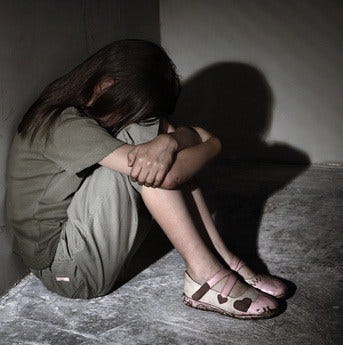In the blame game, we fail to discuss this important subject.
After a person commits suicide, the people in his lives descend into a vicious circle of blame, without being able to understand why he or she chose to die.
For example, in a recent case in Singapore, there was much discussion on whether the police’s treatment of a young suspect (Benjamin Lim) who was involved in a molest case caused him to jump on the same day after his interrogation, if the Ministry of Home Affairs tried to cover things up, or whether an alternative website (The Online Citizen) opportunistically used his death as a lever of anger against the police.

But in this blame game, besides harping on the procedures, who did what and who said what, we are losing a huge opportunity to have a nationwide discussion on why people commit suicide.
In Singapore alone, with a population of 5.4 million, there were about 400 suicides and another 1000 attempted suicides, per year from 2000–2014.
What makes a person want to kill himself? Is life in Singapore really so bad?
Those who have never contemplated suicide may not understand the turmoil and trauma that suicidal people experience. I want to change that.
I’m not a psychologist nor philosopher, but I’ve been there before, wavering between deciding on the value of life, and the value of ending it. This is what I went through. It may be different for each suicidal person, but I hope my sharing helps those who criticise Benjamin’s actions to understand a bit more about the feelings and thoughts that possibly went through his head, and whether there was any chance things could have been different.
1. It can be hard to tell who is suicidal
Suicidal people may not tell anyone that they want to end their lives. Sometimes it’s a surrender to their assumptions that no one can truly understand them, they cannot express the depth of their suffering in mere words, and they can’t handle ridicule and scepticism from their loved ones who may not take their feelings seriously.
2. It is an accumulation of many setbacks, not just one
Suicidal people may not be daunted by one major setback, but because their lives have recently accumulated multiple failures, disappointments and obstacles to future happiness, it is easy to tip them over the edge with just one more negativity.
3. Suicidal thoughts come and go, and they usually have a root in the person’s mind even before the tipping point comes along
I’m not sure about others, but I had long internal debates with myself about the point of staying alive, before moving onto thoughts about suicide, and how I would get it over and done with quickly.
Would I need to write a will or farewell letter before I went (I actually did), what kind of wake/funeral arrangements would I want and how to tie up loose ends?
I think that a suicidal person would most likely have contemplated the consequences of suicide and planned for it, before something comes along to hasten the final decision.
4. Suicidal people may have normal lives with loving family and friends
Those factors are probably why suicidal people delay their suicidal actions. If not for them, I may not have waited so long.
5. Suicidal people can be extremely ‘logical’ yet prone to emotional mood swings
Logic to suicidal people is, if I’m making people’s lives miserable, or I have no future, no backup plan, no hope for acquittal, no chance of redemption or success or happiness, then my life is basically useless and I’m a parasite upon the world.
My feelings and failures make me suffer everyday, and I see this hurting my family and my friends, so why not remove the limiting factor in this world, i.e. myself, to save them from my bankruptcies, public shame and sadness that I may have already caused them or will cause in future?
6. Suicidal people don’t see their problems as solvable, they see themselves as the problem, and to get rid of the problem is the easiest way to help everyone else get along with their lives
Suicidal logic says that ending my life will makes everyone’s lives easier because I won’t get in their way or use up their hard earned money and the people I leave behind can find a better son/daughter/spouse/boyfriend/girlfriend/relative/friend/student/citizen that they truly deserve, not a loser like myself.
7. Suicidal people don’t see themselves as selfish, but being selfless by sacrificing themselves
They may think, “If my existence causes so many problems, why not sacrifice one life for the benefit of many?”
8. Listening and being a sounding board and pillar of strength helps suicidal people change their perspective
You may not be able to change a suicidal person’s mind by telling him things like suicide is wrong, his obligations and family responsibilities etc.
He needs time to think, to process his thoughts, to be listened to without judgement, to come to his own new perspective that he has a long road ahead of him and many opportunities to redeem himself, to conclude by himself that suicide will rob him of his current and future value to his family, friends and to the world, and for himself to consciously decide to change his life for the better.
Conclusion
I hope this is able to help you understand better why suicides still happen although we consider ourselves a first-world country.
Sometimes it is hard to accept the loss of loved ones through what you see as a senseless death, but they may see it as justified.
A caring word, a listening ear and an act of love may just be the difference you can make to persuade a suicidal person to choose life over death.